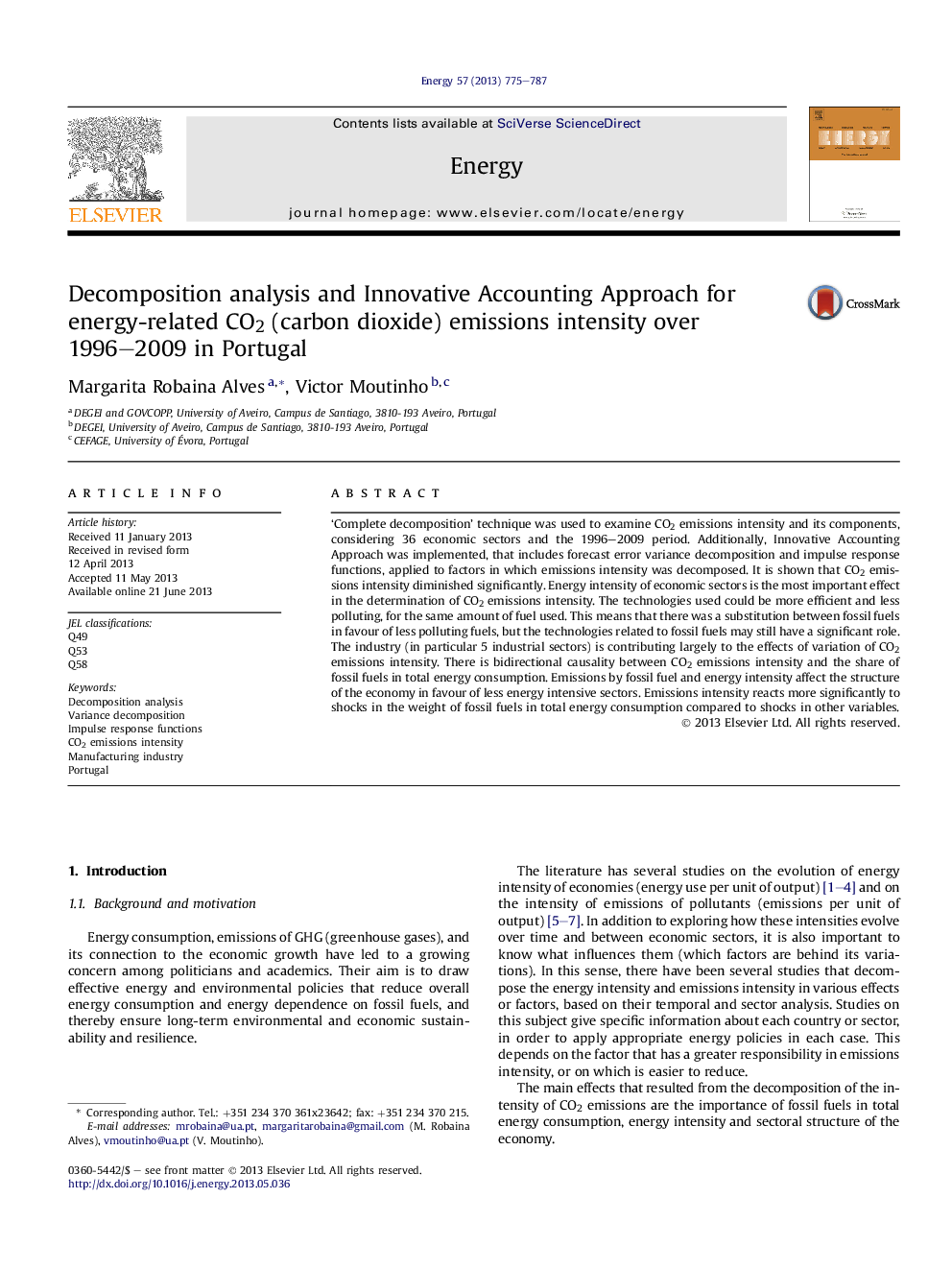| کد مقاله | کد نشریه | سال انتشار | مقاله انگلیسی | نسخه تمام متن |
|---|---|---|---|---|
| 1733121 | 1521489 | 2013 | 13 صفحه PDF | دانلود رایگان |

• We used the ‘complete decomposition’ technique to examine CO2 emissions intensity.
• We used forecast error variance decomposition and impulse response functions.
• CO2 emissions intensity was decomposed into four effects: CI, CE, EI and ES.
• Energy intensity (EI) is the central effect in the determination of CO2 emissions intensity.
• There is a bidirectional causality between CO2 emissions intensity and ratio (fossil fuels/energy consumption).
‘Complete decomposition’ technique was used to examine CO2 emissions intensity and its components, considering 36 economic sectors and the 1996–2009 period. Additionally, Innovative Accounting Approach was implemented, that includes forecast error variance decomposition and impulse response functions, applied to factors in which emissions intensity was decomposed. It is shown that CO2 emissions intensity diminished significantly. Energy intensity of economic sectors is the most important effect in the determination of CO2 emissions intensity. The technologies used could be more efficient and less polluting, for the same amount of fuel used. This means that there was a substitution between fossil fuels in favour of less polluting fuels, but the technologies related to fossil fuels may still have a significant role. The industry (in particular 5 industrial sectors) is contributing largely to the effects of variation of CO2 emissions intensity. There is bidirectional causality between CO2 emissions intensity and the share of fossil fuels in total energy consumption. Emissions by fossil fuel and energy intensity affect the structure of the economy in favour of less energy intensive sectors. Emissions intensity reacts more significantly to shocks in the weight of fossil fuels in total energy consumption compared to shocks in other variables.
Journal: Energy - Volume 57, 1 August 2013, Pages 775–787